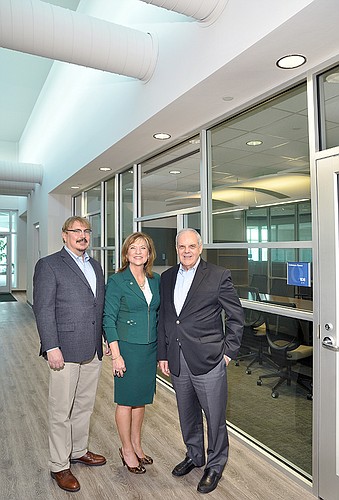- November 24, 2024
-
-
Loading

Loading

Get ready for personalized medicine.
Tailoring medications based on a patient's genetic makeup is near, but there's a lack of trained professionals and equipment, which is keeping the practice from becoming widespread.
To fill that need, a group of health care experts recently created a nonprofit organization in Southwest Florida that will train health care professionals in genomics and attract biotech entrepreneurs with staff and equipment.
“To be able to build biotech, you need trained employees,” says Nicholas Jacobs, president and CEO of the newly formed Clinical and Translational Genome Research Institute in Fort Myers. Jacobs is the former president and CEO of the Windber Medical Center and co-founder of the Windber Research Institute, a genomic research center in Pennsylvania.
“Medical technologists haven't been trained in this area,” says Jacobs, who says the state university combined with a growing medical community in Southwest Florida is fertile ground for a genomic center. “Physicians haven't been brought up to speed, either.”
Housed in the newly built Florida Gulf Coast University Emergent Technology Institute at the Innovation Hub off Alico Road in Fort Myers, the institute will do more than train the next generation of doctors, pharmacists and nurses.
It will also serve as a center for innovation where entrepreneurial doctors can develop therapies for patients, taking existing research to create applications for patients. Startups will be able to take advantage of the facilities, which will include staff and the machines for sequencing people's genetic makeup.
“What we're looking for are practical solutions to medical problems,” says Dan Handley, the institute's scientific director and chief science officer. “We want to serve as a resource for entrepreneurs in the region.”
The pool of wealthy investors in the Naples area is another attraction. “They'll want to be a part of the spinoffs,” Jacobs says.
Jacobs says the institute could help hospitals and medical centers throughout Southwest Florida with their ongoing clinical research, too. “We're listening to what their needs are,” he says.
With a workforce trained in genomic medicine and the equipment for patients' genetic makeup, the institute could be a draw for companies to relocate to the area. “Now we can serve as a resource for them,” says Jacobs.
Indeed, the Innovation Hub has 241 acres ready for the development of offices and laboratories. FGCU's building is the first on the site and measures 25,000 square feet. In addition, Innovation Hub developer Rich Galvano plans other kinds of buildings on the site, including apartments and restaurants, to create a walking community.
The institute is raising $1.5 million it needs to start training people. Victoria Stephan, the former CEO of Junior Achievement of Southwest Florida, is working with the institute to find donors.
Handley says the institute can be self-sustaining in three years. “We're trying to be very conservative,” says Jacobs.
Follow Jean Gruss on Twitter @JeanGruss